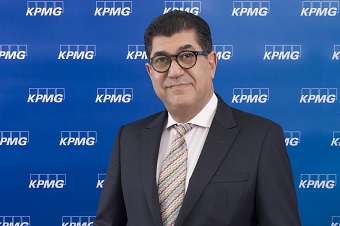Bahrain: CEOs are faced with a stark choice. In the face of unparalleled environmental, economic and technological change, they are looking to grow their businesses by creating the organizational agility to disrupt existing business models and challenge long-held market orthodoxies.
According to the fifth KPMG International Global CEO Outlook, just over half of CEOs are confident they will succeed but are realistic, with 53 percent projecting cautious three-year growth of up to 2 percent (down from 55 percent in 2018). As with 2018, they are also maintaining a positive three-year growth outlook for the global economy, although this has slightly fallen from 67 to 62 percent over the last 12 months. This confidence is also shown by their commitment to hire, with 36 percent of CEOs projecting to add more than six percent to their workforce in the next three years.
Jamal Fakhro, Managing Partner at KPMG in Bahrain, commented on the report findings and said: “the economic and technological changes we have seen emerge, in Bahrain and worldwide, over the past years are no longer short-term. Business leaders need to reprogram their organizations to withstand such economic challenges and find new ways to grow. To be resilient and stay competitive, CEOs need to achieve better alignment across their organizations to meet customer expectations and improve business performance.”
“A successful CEO now needs to be an agile CEO,” said Bill Thomas, Global Chairman, KPMG International. “Succeeding in a world of volatility and uncertainty requires different leadership skills, particularly in large, multi-national organizations. It’s no longer a question of simply defending your position and using scale to maintain competitive advantage. Today, CEOs need to be comfortable disrupting their business models by forging new strategic partnerships, considering alternate M&A strategies and increasing the skills of their workforces.”
Cyber continues to be high on the CEO agenda, despite falling from the second highest risk last year to fourth this year. In 2019, a larger group of CEOs (69 percent vs 55 percent in 2018) say a robust cyber security strategy is critical to driving trust with key stakeholders and most (71 percent) view information security as a key factor in their broader innovation strategy.
For many CEOs, M&A presents the best opportunity to upgrade digital capabilities with pace. A proactive M&A strategy is on the agenda for 84 percent of CEOs who have a moderate or high M&A appetite for the next three years. Driving this appetite is the ability of M&A to transform a business model faster than organic growth.
Artificial intelligence (AI) is on the minds of CEOs, yet only 16 percent have implemented AI and automation programs. A further 31 percent are still at the pilot stage, while 53 percent admit to undertaking a limited AI implementation. Yet 65 percent of CEOs believe the inclusion of AI and automation will create more jobs than it eliminates.



